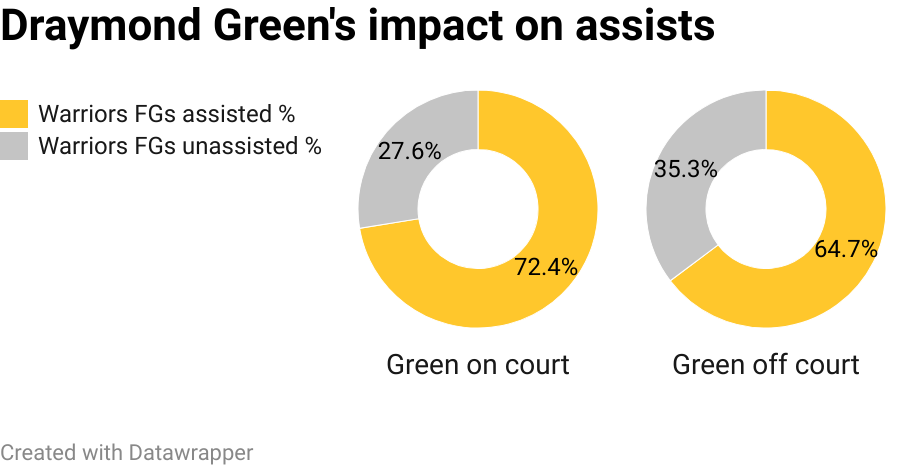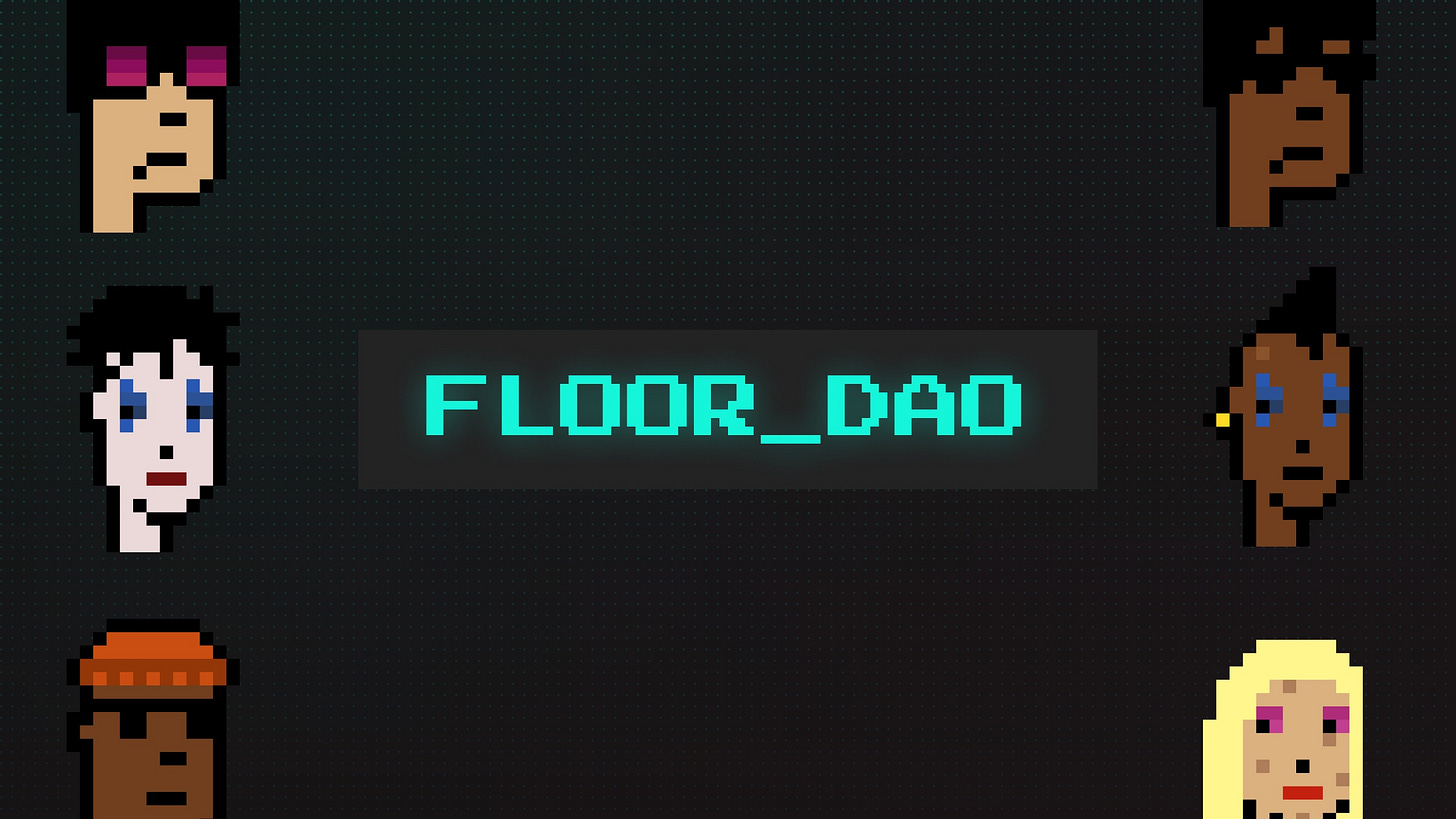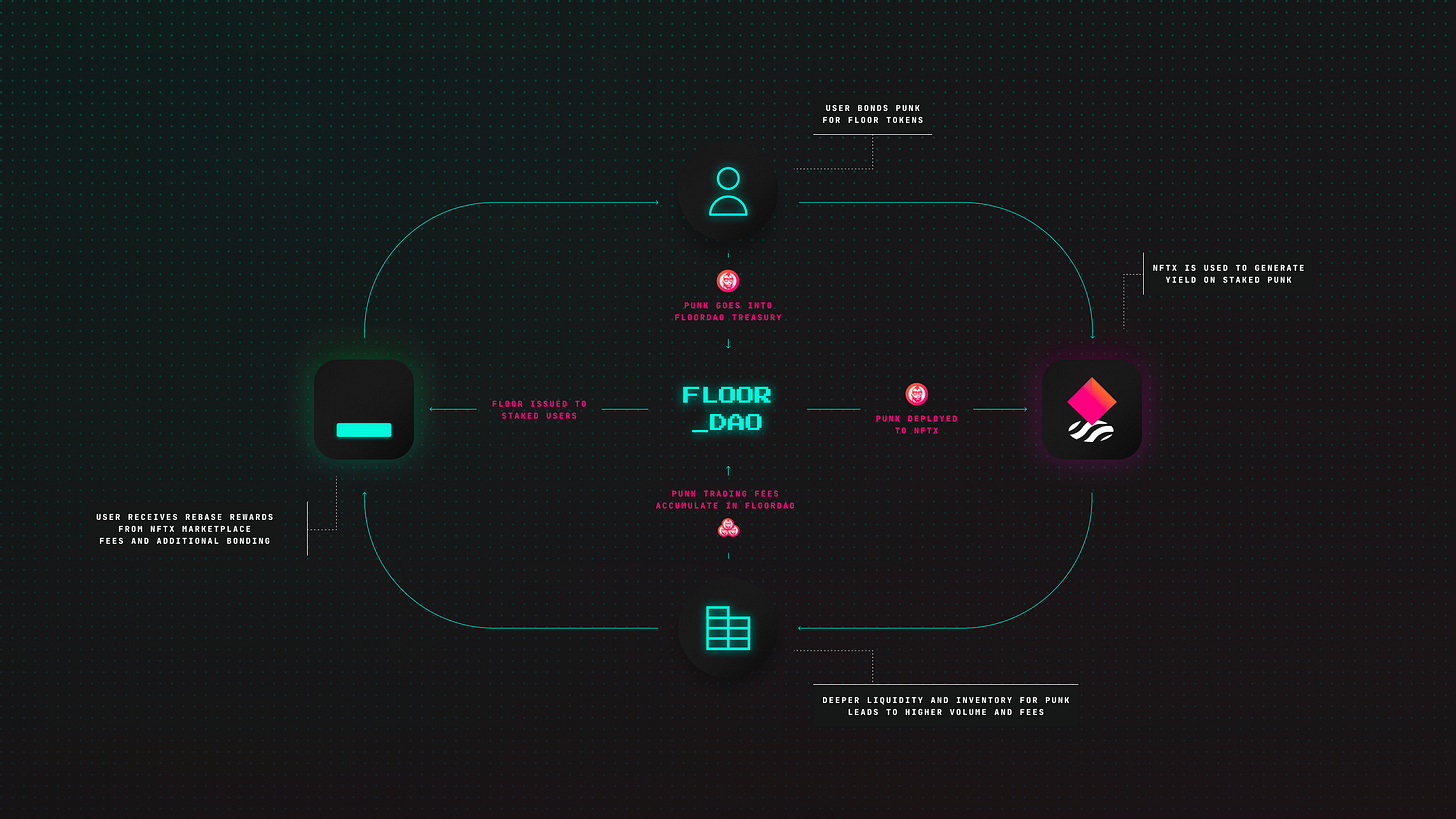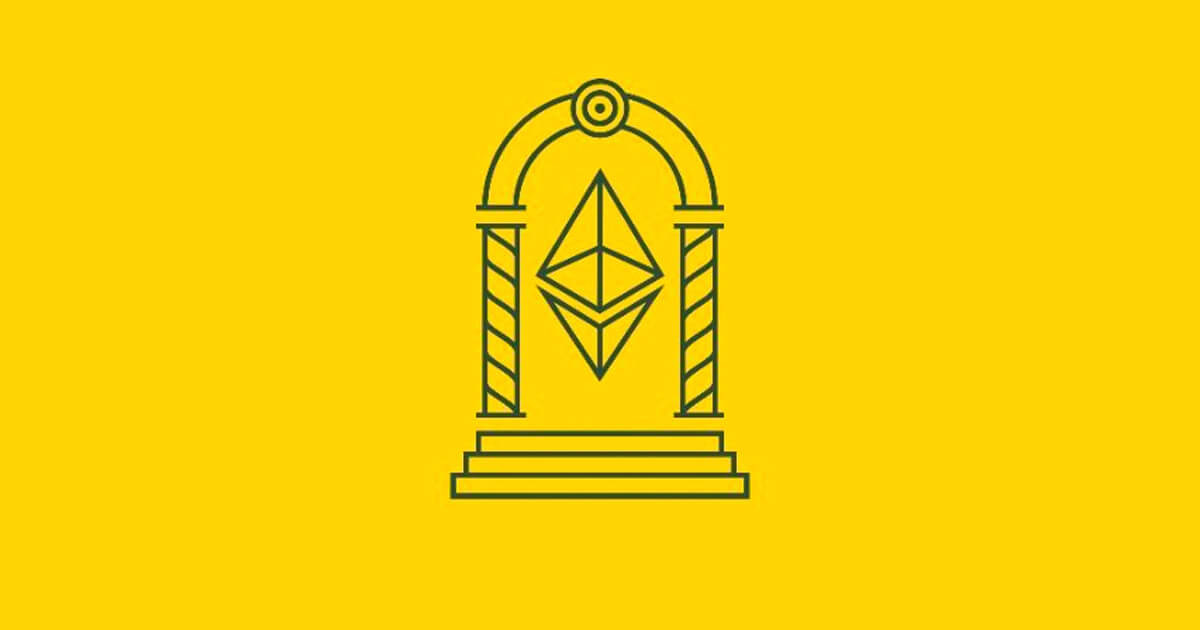DAOs Get in the Golden State of Mind
You're reading State of the DAOs, the high-signal low-noise newsletter for understanding DAOs.
gm gm and welcome to the State of the DAOs!
Let’s all get together and admit one basic fact about DAOs: we’re still figuring out how to build great teams. We work hard to coordinate and align incentives, and most long-time DAO contributors are eager to onboard new members into ongoing projects. Yet even during the recent bull run, we still saw teams fall apart and projects dissolve. You can have capital, culture, and contribution, but those essential elements alone are not enough to build great teams.
We are trained to look to project management principles and crypto-native solutions when workshopping how to make our teams and projects more resilient and agile. But perhaps we should be looking elsewhere, in this case to professional sports.
To win a professional championship in a major sport, having money, labor, and the city behind you is not enough, as this is nearly ubiquitous in modern sports. No, to win a championship trophy you have to have the full package: a great game, but also a whole host of other factors, such as understanding how players fit together within the team and thinking through second and third order consequences of any given action.
For this week’s editorial, Jake and Stake uses the recent history of the Golden State Warriors, who just won their 4th NBA Championship, to illustrate how we can build better teams that perform at a high level over a long horizon. Jake teaches us that skilled contributors are but one variable in the formula for a high-performing DAO team.
Contributors: BanklessDAO Writers Guild (Jake and Stake, anointingthompson1, EthHunter, Kaf, leah_par, Ornella, hirokennelly.eth, siddhearta)
This is the official newsletter of BanklessDAO. To unsubscribe, edit your settings.
🙏 Thanks to our Sponsor
DAOs Get in the Golden State of Mind
Author: Jake and Stake

The Golden State Warriors have been one of the most dominant teams in U.S. professional basketball for nearly a decade. While it's true the Warriors won the 2022 NBA Championship because of Stephen Curry’s offensive prowess, much more sealed the win than one person’s individual talent. There were a variety of factors that contributed to Golden State’s fourth NBA title, and all of these factors can be used by DAOs to help them build more robust and resilient teams and create greater opportunities for success.
We’ll dig into layered thinking, durability, and much more.
Layered Thinking
Steph Curry is known for his offensive abilities. He can hit threes, knock down mid-range jumpers, and finish at the rim. He’s worked for years on these skills, endlessly practicing many different scenarios.
By themselves, these three skills would make an incredible player. But what separates Curry from his peers is how he reads the defense because, similarly, there are three layers of offense: how to handle your defender, how to distribute the ball when help-side defense comes, and how to relocate to get an open look. Granted, Steph practically invented the last layer.
Layered thinking requires predicting how your actions will reverberate into the future. This is the essence of long-term thinking. When we solve one problem, we may end up creating another that’s even worse, so it’s crucial that we identify subsequent order consequences.
This layered thinking is how Steph Curry became one of the greatest players of all time:
The ONLY player in NBA history to make 500 career playoff threes.
1st All-time in 3 pointers made in NBA history.
Two NBA MVP awards (one being the only unanimous MVP selection in league history).
NBA record for most consecutive regular-season games with a made three-pointer.
The list goes on and on.
We can use these levels of play to analogize layered thinking. Steph often makes these decisions in split seconds, but in DAOs this kind of thinking is deliberate and slow. DAOs and their contributors should think the same way. Once we go down a path of thought, we should ask ourselves “And then what?”. We need to understand the consequences of our actions and how these consequences will be felt further into the future.
It can be tempting to try to push initiatives that you want through to the finish line (believe me), but if there’s no real consensus around these changes, it will delegitimize the entire governance process. If you ram your proposal through, the first order effect is that your initiative will be enacted. The second order effect is that other contributors will do the same for initiatives that will be injurious to the DAO, and the third order effect is the ultimate collapse of the organization.
Some good questions to ask:
“And then what?”
What do the consequences look like in 10 minutes? 10 months? 10 Years?
Go through each of the consequences and their effects into the future.
How will the rest of the DAO respond to this? How will the broader crypto ecosystem respond to this?
Durability Is a Talent
If there’s one thing that DAOs can take away from the Warriors it’s this: Durability is a talent. People get caught up in the highlights and the box scores, but most people don’t realize that consistency is crucial. To win, you have to show up.
If Steph missed a game, was inconsistent, or had injury problems, he’d have had no chance to collect the accolades mentioned above, and he certainly wouldn’t have become the greatest shooter the game has seen. It doesn’t matter if you’re a once-in-a-generation talent — if you can’t play games, you can’t be great.
Additionally, the ability to recover from setbacks is a talent. This is why Klay Thompson’s recovery from two major injuries — a torn ACL and a torn Achilles tendon — was so remarkable. He was able to get back in the game after (1) two injuries that would’ve killed most careers and (2) 30 months since he last played in an NBA game.
The same principle applies in DAOs: the most successful DAOs have members contributing consistently. Contributors should prioritize preventing burn-out, leaders should recognize the people who are showing up consistently, and DAOs should reward these contributors with recognition and pay.
If people burn out, it’s not good for the health of the organization. DAOs need contributors who understand themselves and can stay in it for the long-haul, and a community that recognizes their value.
Injuries will kill an NBA career the same way that overstimulation and burn out will kill a career in crypto. In both the NBA and crypto, reliability is royalty and the best ability is availability.
The Coaching Staff Is Underrated
The entirety of the coaching staff is what leads to great outcomes. A phenomenal assistant coach can make a great team just as a bad assistant coach can break it. It’s often the assistant coaches who spend the most one-on-one time with players, and their value is much higher than the media makes it out to be.
Many assistant coaches would make impressive head coaches. Take the Celtics head coach, Ime Udoka. Before Udoka coached the Celtics, he was an assistant coach for the Brooklyn Nets, and many of the Warriors’ assistant coaches have been poached by other NBA franchises.
Basketball teams often need analytics-based coaches and “basketball flow” coaches to create a great team. Teams need people who can deliver on promises and people who can keep the vibes up.

It’s clear why analytics and tactical coaches are important. They create game plans for the team to implement. They give direction and concrete value, but “flow coaches” are just as important.
Flow coaches, or chief vibe officers, can often make the difference between a good game and a bad game, whether through direct influence or by contributing to the improvement of others. Looking at the top 8 players for each team, you would accurately predict the outcome of each match up based on statistics alone. But not for the Mavericks. They often beat the spread because they had Jason Kidd as the head coach. His understanding of basketball flow and his ability to rally his team was the difference maker in tough match-ups.
Bottom line: you need people who are tactical planners and people who are charismatic leaders to create a successful team.
The End of the “Boys’ Club”
The Warriors’ front office played a key part in the success of the team. In the past, basketball franchises were run like ‘boys’ clubs. People who had connections and could shmooze really well would take important roles in the organization. They could become talent scouts, general managers, or even coaches, but the Warriors don’t run their club like this.
The Warriors are run more like a company, where people within the organization (not just players) have goals, KPIs, and accountability for their actions. Recent championship franchises are run more like companies where employee performance indicators are highly valued and nepotism is not. The Warriors’ front office focused on doing things the right way, rebuilding slowly, methodically, and in some cases controversially.
Be wary of nepotism. Rewarding people because of favoritism will negatively affect the team, because the expected level of competence is lower. It becomes more important to be liked than it is to be proficient, and the best contributors will leave. DAOs should strive to reward the people who consistently deliver results. These people are the heartbeat of the organization, the MVPs.
The management of the Warriors tasted victory yet again because they kept the core of the team together. They had the opportunity to trade key players, but instead committed to the long-term vision by keeping Steph Curry, Klay Thompson, and Draymond Green together. The Warriors’ front office succeeded, in part, because of the chemistry and talent of this core trio.
It is supremely important to figure out who you should be working with and how your team fits together. If you lead a project team, it’s important that you have people on your team who will improve the people that they work with.
In general, DAOs should endeavor to play long-term games and reward contributors who are in it for the success of the project and not just for their own short-term, personal gain. Contributors who create good results (including good vibes) should be rewarded, while nepotism and single points of failure should be avoided at all costs. This will create better team chemistry, greater successes, and sustainable organizations.
Find the Gaps
Championship teams have superstars, but they can’t be good at everything. The Warriors have incredible offensive firepower with Steph and Klay, but the team needs defensive-minded players to fill their gaps. The Warriors have an incredible bench that can be called upon to fulfill their roles, and are just as crucial for winning championships.
Take Draymond Green. Green doesn’t necessarily score a bunch of points or get a ton of rebounds, but he is an offensive and defensive floor general. He’s someone you need on the team to get the vibes right and lead in areas of the game where the stars are weakest.
It’s important to understand that there are many skills that determine how players fit into the team. Shooting threes, acrobatic layups, and big-brained passes are talents to be admired, but great offense is much more than that.
Players can still be good at offense even if they don’t often score. Some players are bad at isolation basketball, but can finish a lob, know when to cut, or how to get to an open corner to knock down the three.
Defense and offense require layers of ability. Someone may not be a great “on-ball” defender, but is great at “team defense”. This means recognizing the need to help a teammate being attacked, recognizing player spacing to counter the offense, and communicating the situation to your teammates.
DAOs should consider different factors that make a contributor valuable and try to put them in the best position to succeed. There are many factors that contribute to the DAOs success like operations, onboarding, and planning that are not as apparent as programming, tokenomics, and business development.
It’s important to understand each person’s strengths and weaknesses and put them in situations where they can succeed. This can be implemented at onboarding, where the welcoming party also serves as the talent office. Skills can be assessed and contributors can be sorted upon their arrival.
TL;DR
Just as basketball teams know what the goal is (winning a championship), DAOs should figure out their own mission first, but contributors make the difference between good and great teams.
Consider second and third order consequences when making “one-way door” decisions.
Durability is a talent. The best ability is availability.
When putting a team together, everyone matters. Your lieutenants should make everyone on the team better.
How a player fits on a team is often more important than individual play.
Reward results and play long-term games to create good team chemistry.
Understand who you’re working with and how to put them in the best positions to succeed.
Actions steps
📖 Read Having The Hard Conversation: Building Better Compensation Frameworks in DAOs by Samantha Marin
⛏️ Dig into Updating the DAO Operating System by siddhearta
🎧 Listen Monolithic to Modular DAOs with Julz Rosenberg | Layer Zero by BanklessHQ
🙏 Sponsor: Balancer DAO- #BALbattles begin!
DAOs at a Glance
Hand-picked articles to understand the current state of the DAO ecosystem


Why Web3 Needs Product Management
Author: Ramon Canales & Antoine Sakho
The value of decentralization a lot has led to a total absence of product management within the DAO ecosystem. This has created massive issues in team alignment and coordination, thus leading to operational inefficiencies within DAOs and their projects.
Even if there is consensus for a project, many community voters will not have the required knowledge to design the projects implementation, leading to misdirected votes for a suboptimal project strategy. Scenarios like this exemplify how a lack of information can lead to bad products and worse outcomes.
But we can make “Decentralized Product Management” happen through the creation of subdivisions (or subDAOs) where teams that have a responsibility have the authority over the project.
Incentive Design & Tooling for DAOs
Author: Ben Perez
DAOs must to fairly reward its members and ask themselves if it is necessary to decentralize all the work and whether the incentives are overvalued or undervalued. Compensation will depend on the complexity, urgency, and frequency of each task. When picking out an incentive mechanism, it’s important to ask whether the mechanism is good at inducing the outcome you want.Once the needs have been defined, there is a variety of mechanisms to choose from: POAPs, NFTs, grants, tips, bounties, Coordinape, or KPI Options.
The best thing about DAOs is that all these dilemmas will be resolved by community consensus, that's the magic of web3.
How to retain high-value contributors to your DAO?
Author: Eliot Couvat
While there are many ways to increase an employee's well-being, three specific elements tend to have a very strong influence on the retention of employees in DAOs.
Culture gives them a sense of purpose and belonging through the creation of a strong culture and share long-term visions and values. Letting them be accountable for the success of projects and culture thereby creating trust In the organization.
Tools are crucial to for contributors to do great work. Tools that help in the facilitation of activities across the DAO like payments, governance, communications, and other reputation systems.
Ownership and autonomy give contributors a sense of control over their own journey within the DAO. By allowing contributors to work on the things they want, they will have a greater incentive to stay. The core team can give contributors ownership opportunities by allowing them to vote on important decisions and by giving them equity.
Ecosystem Takes
🔥 and 🧊 insights from across the DAO ecosystem
The Community Engagement Trap
Author: Rosie Sherry
🔑 Insights:
Generally, a community is understood to be a place of engagement. Engagements range from small-talk to project planning, but for community builders solve what really matters engagement is just part of what needs to be done, and not the end goal. Engagement is necessary but not sufficient.
The biggest problem with community engagement is engagement metrics. We live by them and allow them to determine our access to budget and our level of confidence, but when a measure becomes a target, it ceases to be a good measure.
We need to redefine community engagement. Rather than focusing on the superficial community activities, efforts should be made to highlight the activities that actually matter. For DAOs, this could be treasury inflows, IRL meetups, or products and projects.
It’s important to determine who your community is and what they want. The best DAOs create value for contributors, themselves, and the broader ecosystem.
Issue #70: Governance Experiments
Author: Andrew Beal
🔑 Insights:
Despite growing acknowledgement that simple token-based governance models have (arguably) critical flaws, the amount of experimentation in governance is low. The key observation is that more experimentation is needed if decentralized governance is going to be sustainable.
By and large, delegation has been a successful at improving efficiency, and we may be on the cusp of a second, more radical phase of experimentation involving NFTs.
In many cases, governance participation is the primary utility for a token. Removing that right renders the token completely worthless. Token-based governance also allows insiders (founders and early investors) to maintain control while claiming decentralization.
The majority of governance experiment/innovation will come from new projects like Optimism that must implement decentralized governance for the first time and are conscious how previous governance systems are flawed.
How DAOs can Benefit from Co-op Best Practices
Author: Sardius
🔑 Insights:
Although not all DAOs are co-ops (cooperatives), many DAOs were created in alignment with the Rochdale principles – which is to solve centralized coordination problems. The Rochdale principles can be applied to DAOs to ensure we build organizations that hold the interest of its members highly.
According to the first principle, cooperatives are open to anyone who is willing to take the responsibilities of being a member without discrimination due to gender, culture, race, or religion. Because DAOs allow anyone to join or leave when they pleas, members need sufficient motivation to participate.
Cooperatives (like DAOs) must be autonomous and independent.
The Bull Case for Pods
Authors: Chase Chapman, Julia Rosenberg, and frogmonkee
The atomic unit of a DAO isn’t people or projects – the atomic units are the small groups of people working together: pods. These pods are NFT gated groups that are governed by on-chain, modular systems.
Give the right people autonomy to do their jobs. If a bug needs to be patched, let the developers make the change without unnecessary parties getting involved.
Pods utilize flexible, on-chain organizational structures to manage voting and membership modularly.
Pods are on-chain. This allows tools and people to identify members, organizational structure, and payments. This could lead to new analytics products that identify how an organization operates and how people work together.
Ideally, the organization should be able to function as key members enter and exit. This is what leads to a robust ecosystem.
DAO Spotlight: FloorDAO
FloorDAO uses the bonding mechanism of Olympus DAO and the decentralized market making of NFTX to buy “blue chip” NFT pieces at the floor price (minimum priced pieces) and turning them into derivative ERC20 tokens. Their goal is to make illiquid jpegs liquid and provide this liquidity to users.
The goal of FloorDAO is to sweep the floor of established NFT projects, generate an ERC20 token that represents their collected NFTs (one per project) and generate yield for the DAO treasury through protocol owned liquidity (pioneered by Olympus DAO).
FloorDAO also implements Olympus V2s bonding mechanism to collect the desired NFTs in its treasury. NFT holders of DAO-approved projects can trade their NFTs for FLOOR tokens. FloorDAO also accepts other assets like MAYC, PUNK, and WETH in exchange for FLOOR.
These FLOOR tokens are able to be staked back to the protocol, and staking is similar to Olympus as well. FLOOR is staked to receive an equal amount of sFLOOR, and this token rebases every 8 hours, automatically adding more sFLOOR to your original staked amount. sFLOOR can also be wrapped into gFLOOR. This token is then used in governance and utilizes Snapshot for voting.
Get Plugged In
Event Highlights
ETHBarcelona is the first ETH-conference in Spain and among the first to include a Spanish speakers track. Spanish is the second largest native language in the world and is spoken by more than 460 million people. The conference focuses on education, innovation, art, and creative solutions that promote social impact. Visitors will get a unique and memorable 360 experience with conferences, workshops, and festival vibes, encouraging the mind, body, and soul to grow. This event will be held the International Barcelona Convention Center from July 6-8.
SmartCon 2022 — Hosted by Chainlink — There will be two full days of keynotes, panels, developer workshops, and AMAs featuring leading projects and speakers from across the blockchain ecosystem. You’ll get insight into the latest Web3 developments directly from researchers, developers, and founders at the forefront of smart contract innovation. This event will be held live in New York City, New York and virtually from September 28-29.
🧳 Job Opportunities
Get a job in crypto! Do you like solving hard problems, care about building more efficient markets for everybody, and want to work at the frontier of decentralized finance? Rook is looking for full time contributors, with salaries ranging from $169,000-$722,000. There are positions ranging from engineering, recruiting, product marketing, copywriting, and design. Sound interesting? Sign up for our referral program and go full-time DAO.
Solidity Developer
Sr. Backend Engineer (Python)
Frontend Engineer (React/Typescript)
Executive Assistant (❌ technical)
Sr. Copywriter (❌ technical)
2D Graphic Designer
Quantitative Analyst
🙏Thanks to Our Sponsor
Balancer
Balancer is a flexible and versatile Automated Market Maker that enables efficient trading and the exchange of any combination of ERC-20 tokens permissionlessly.
Balancer also turns the concept of an Index Fund on its head: instead of paying fees to Portfolio Managers, you can now collect fees from traders who rebalance your portfolio by following arbitrage opportunities.
The Balancer Protocol is a core building block of DeFi infrastructure — a unique financial primitive and development platform.




















